#ContagiousDiseasesinDogs
Explore tagged Tumblr posts
Text
How Do Dogs Get Kennel Cough?
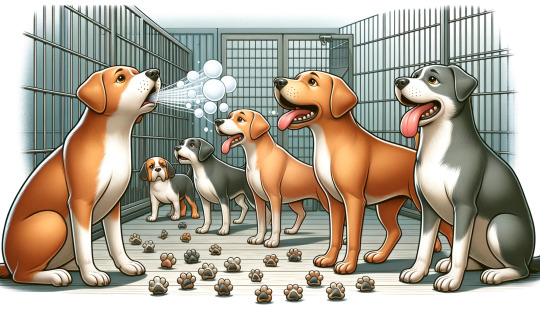
Introduction Kennel Cough, also known as canine infectious tracheobronchitis, is a highly contagious respiratory disease that affects dogs. Understanding how dogs contract this illness, its symptoms, and prevention methods is crucial for pet owners. This article delves into the various aspects of Kennel Cough, providing comprehensive insights into its transmission, risk factors, and effective measures to protect your furry friends. Key Takeaways: Kennel Cough - Kennel Cough is a highly contagious respiratory disease in dogs. - Common symptoms include persistent cough, sneezing, and nasal discharge. - Transmission occurs through direct contact with infected dogs or contaminated surfaces. - Risk factors include crowded environments, weakened immune systems, and poor ventilation. - Vaccination is the most effective prevention method. - Complications can include pneumonia and tracheal collapse. - Treatment involves rest, isolation, and possibly antibiotics. - Good hygiene and avoiding crowded places can help prevent Kennel Cough.
Symptoms of Kennel Cough

Kennel cough, also known as canine infectious tracheobronchitis, is a highly contagious respiratory disease that commonly affects dogs. It is typically caused by a combination of bacterial and viral infections, making it difficult to eliminate completely. The symptoms of kennel cough can vary in severity, depending on the individual dog and the specific pathogens involved. One of the most noticeable symptoms of kennel cough is a persistent, dry, hacking cough. This cough is often described as similar to the sound of honking or gagging. Dogs with kennel cough may also experience episodes of coughing that worsen after exercising or excitement. In some cases, the cough may be accompanied by retching or gagging noises. While kennel cough is usually a self-limiting condition, it can cause significant discomfort and irritate the respiratory tract, leading to further complications if left untreated. It is essential to monitor your dog's symptoms and seek veterinary care if the cough persists or worsens. • Persistent, dry, hacking cough • Coughing worsens after exercising or excitement • Cough may be accompanied by retching or gagging noises • Discomfort and irritation of the respiratory tract
Transmission of Kennel Cough
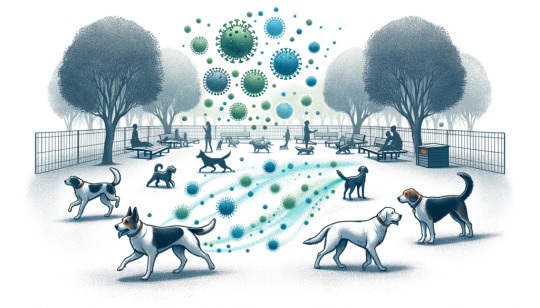
Kennel cough, also known as canine infectious tracheobronchitis, is highly contagious and can easily spread from one dog to another. The most common method of transmission is through direct contact between infected and healthy dogs. When an infected dog coughs or sneezes, tiny respiratory droplets containing the bacteria or virus responsible for kennel cough are released into the air. These droplets can land on surfaces and objects, where they can remain infectious for hours or even days. Healthy dogs that come into contact with contaminated surfaces or inhale the airborne particles have a high risk of contracting the illness. Other modes of transmission can occur in certain situations. Dogs can also contract kennel cough by sharing food and water bowls, toys, or bedding with infected dogs. Additionally, crowded places where dogs gather, such as boarding kennels, dog shows, grooming salons, and animal shelters, can serve as hotspots for the spread of kennel cough. The close proximity of multiple dogs in these settings increases the likelihood of transmission through direct contact or exposure to contaminated surfaces. However, it's important to note that dogs can also contract the infection in everyday environments, such as during walks in the park or encounters with other dogs on the street.
Risk Factors for Kennel Cough

Kennel cough is a highly contagious respiratory disease that can affect dogs of all ages and breeds. While any dog can contract kennel cough, there are certain risk factors that can increase their susceptibility to the disease. One of the main risk factors is exposure to crowded or stressful environments, such as boarding kennels, dog shows, or shelters. These settings often involve close contact with other dogs, making it easy for the infection to spread. Additionally, dogs that have weakened immune systems, such as puppies, older dogs, or those with underlying health conditions, are at a higher risk of developing kennel cough. Another risk factor for kennel cough is poor ventilation. Dogs that are kept in poorly ventilated areas, such as cramped cages or rooms with no fresh air flow, are more likely to breathe in the bacteria or viruses that cause kennel cough. Similarly, dogs that are exposed to environmental irritants, such as cigarette smoke, dust, or chemicals, may also be more susceptible to the disease. These irritants can damage the respiratory tract, making it easier for the pathogens to take hold and cause infection. It is important for dog owners to ensure that their pets are kept in clean and well-ventilated areas to reduce the risk of kennel cough. • Exposure to crowded or stressful environments, such as boarding kennels, dog shows, or shelters • Weakened immune systems, such as puppies, older dogs, or those with underlying health conditions • Poor ventilation in cramped cages or rooms with no fresh air flow • Exposure to environmental irritants like cigarette smoke, dust, or chemicals
Common Places Where Dogs Can Contract Kennel Cough
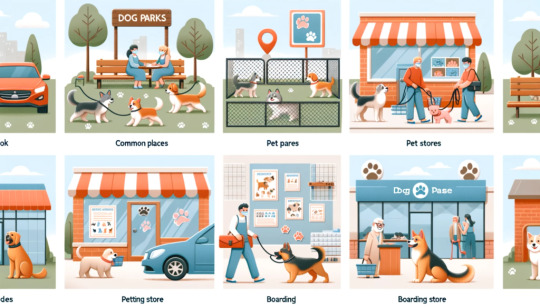
Dogs can contract kennel cough in a variety of common places where they come into contact with other dogs. One of the most common places is at boarding facilities or kennels, where dogs are often brought together from different environments. The close proximity and shared spaces can easily facilitate the spread of the infection. Additionally, dog parks and daycare centers are also potential hotspots for kennel cough transmission, as they are frequented by numerous dogs of different backgrounds. These places provide ample opportunities for dogs to come into direct contact with each other, increasing the risk of transmission. Another common place where dogs can contract kennel cough is during visits to the veterinarian's office. When dogs go for check-ups or are brought in for other medical procedures, they can be exposed to other sick dogs in the waiting room or examination areas. Although veterinary clinics have strict hygiene protocols in place, there is still a chance for dogs to come into contact with infected animals. It is important for dog owners to remain vigilant and take necessary precautions when visiting the veterinarian to minimize the risk of their dog contracting kennel cough in these settings. Overall, it is crucial for dog owners to be aware of the common places where dogs can contract kennel cough. By understanding the environments that pose a higher risk of transmission, appropriate preventive measures can be implemented to help protect dogs from this highly contagious respiratory infection.
Prevention Measures for Kennel Cough
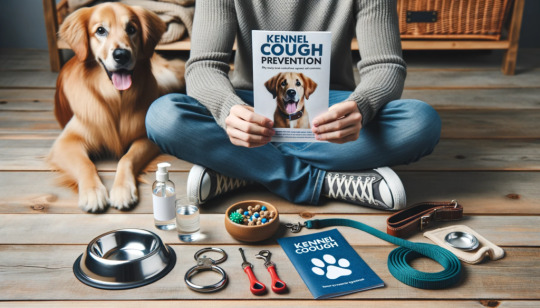
Preventing kennel cough in dogs can be challenging, but there are several measures that can help reduce the risk of infection. The most effective prevention method is vaccination. Vaccines for kennel cough are available and recommended for dogs, especially those that are frequently exposed to other dogs, such as those in boarding facilities, dog parks, or training classes. It is important to consult with a veterinarian to determine the appropriate vaccination schedule for your dog. In addition to vaccination, practicing good hygiene and avoiding exposure to infected dogs can also help prevent kennel cough. Regularly cleaning and disinfecting shared spaces, such as kennels and toys, can help kill the bacteria or viruses that cause kennel cough. Avoiding crowded places with poor ventilation and minimizing direct contact with dogs that are coughing or exhibiting symptoms can further reduce the risk of infection. It is also important to ensure that your dog has a strong immune system through a balanced diet, regular exercise, and proper grooming.
Vaccination Options for Kennel Cough

Vaccination is an effective way to protect dogs against kennel cough. Several vaccines are available to prevent this highly contagious respiratory infection. The most common types of vaccines for kennel cough include injectable vaccines, intranasal vaccines, and combination vaccines. Injectable vaccines are given subcutaneously, while intranasal vaccines are administered directly into the dog's nose. Combination vaccines, on the other hand, provide protection against multiple diseases, including kennel cough, in a single shot. It is important to note that vaccination does not guarantee complete immunity, but it significantly reduces the severity of symptoms and the risk of infection. The frequency of kennel cough vaccination depends on various factors such as the dog's age, health condition, lifestyle, and exposure to other dogs. Generally, initial vaccine administration is recommended when the dog is around six to eight weeks old. Booster vaccinations are typically given every six to twelve months, depending on the specific vaccine used. However, it is crucial to follow the recommended vaccination schedule provided by your veterinarian, as they will consider your dog's individual needs and risk factors. Additionally, it is worth mentioning that some boarding kennels, dog parks, and grooming facilities may require proof of up-to-date kennel cough vaccination before allowing dogs on their premises.
Duration of Kennel Cough Infection
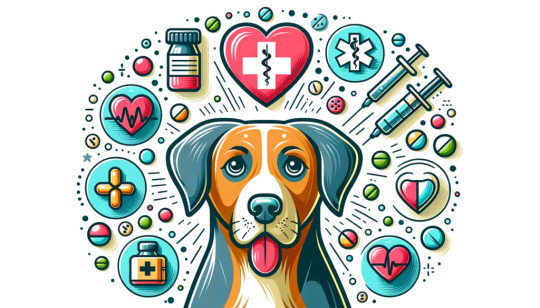
The duration of a kennel cough infection can vary depending on various factors, including the individual dog's immune system and the severity of the infection. In general, most cases of kennel cough tend to resolve on their own within one to three weeks. However, it is important to note that some dogs may experience symptoms for a longer period of time. During the initial stages of infection, dogs may exhibit symptoms such as a dry, hacking cough, sneezing, nasal discharge, and lethargy. As the infection progresses, the cough may become more severe and produce a gagging sound due to irritation in the throat. It is essential to monitor your dog's symptoms closely and seek veterinary attention if the condition worsens or persists for an extended period of time. Understanding the usual duration of kennel cough can help dog owners recognize when their pet's condition is improving or if additional medical intervention is necessary. • Most cases of kennel cough resolve within one to three weeks • Some dogs may experience symptoms for a longer period of time • Initial symptoms include a dry, hacking cough, sneezing, nasal discharge, and lethargy • As the infection progresses, the cough may become more severe and produce a gagging sound • Monitor your dog's symptoms closely and seek veterinary attention if they worsen or persist for an extended period of time
Complications Associated with Kennel Cough
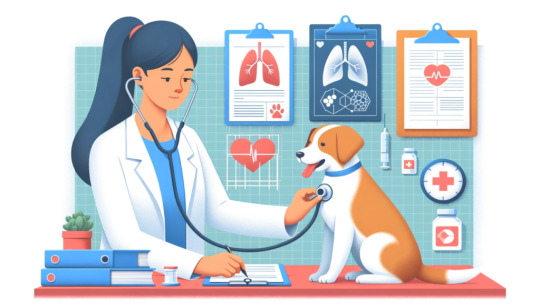
Complications can arise when a dog contracts kennel cough. While most cases of kennel cough resolve on their own within a couple of weeks, some dogs may experience more serious complications. One common complication is the development of pneumonia. This occurs when the initial infection spreads to the lungs, causing inflammation and difficulty breathing. Pneumonia can be particularly dangerous for young puppies, older dogs, and those with weakened immune systems. Another complication that can occur with kennel cough is tracheal collapse. The forceful coughing associated with the illness can put strain on the trachea, leading to weakening of the cartilage rings that support it. Over time, this can result in the collapse of the trachea, causing coughing, wheezing, and difficulty breathing. Small dog breeds, such as Yorkshire Terriers and Chihuahuas, are more prone to this complication. It is important for pet owners to be aware of these potential complications and seek veterinary care if their dog's symptoms worsen or if they notice any concerning signs. Prompt diagnosis and appropriate treatment can help prevent further complications and promote a quicker recovery for dogs affected by kennel cough.
Diagnosis of Kennel Cough

There are several diagnostic methods that veterinarians use to diagnose kennel cough in dogs. The first and most common approach is a thorough physical examination of the dog, which includes checking the dog's temperature, listening to its breathing, and examining its throat and nose for any signs of inflammation or discharge. Additionally, the veterinarian may ask the dog owner about the dog's medical history and recent exposure to other dogs or high-risk environments. This information can help in the diagnostic process. In some cases, further diagnostic tests may be necessary to confirm the presence of kennel cough. These tests can include a blood test to determine if there is an increase in white blood cells, which is often an indication of infection. Another common diagnostic tool is a tracheal wash, where a small tube is inserted into the dog's trachea to collect samples of mucus and bacteria for analysis. This can help identify the specific cause of the cough, such as Bordetella bronchiseptica or other bacteria. X-rays or other imaging techniques may also be used to evaluate the dog's respiratory system and rule out other underlying conditions.Overall, a combination of physical examination, medical history, and diagnostic tests helps veterinarians accurately diagnose kennel cough in dogs. • Thorough physical examination, including temperature check, breathing analysis, and throat/nose examination • Inquiry about medical history and recent exposure to other dogs or high-risk environments • Blood test to check for increased white blood cells indicating infection • Tracheal wash to collect mucus and bacteria samples for analysis • X-rays or imaging techniques to evaluate respiratory system and rule out other conditions
Treatment Options for Kennel Cough
One of the treatment options for kennel cough involves the use of antibiotics. These medications help to target and eliminate the bacterial infection that may be causing the coughing symptoms. The type and duration of antibiotic treatment will depend on the severity of the infection and the overall health of the dog. It is important to follow the veterinarian's instructions regarding the dosage and duration of the antibiotics to ensure effective treatment. In addition to antibiotics, cough suppressants may also be prescribed to help alleviate the persistent coughing associated with kennel cough. These medications work by reducing the urge to cough, providing relief and allowing the dog to rest and recover. Read the full article
#caninehealth#CanineInfectiousTracheobronchitis#CanineRespiratoryInfections#ContagiousDiseasesinDogs#dogdiseases#Doghealth#kennelcough#KennelCoughPrevention#KennelCoughRiskFactors#KennelCoughSymptoms#KennelCoughTransmission#KennelCoughTreatment#KennelCoughVaccination#petcare#RespiratoryDiseaseinDogs
0 notes
Text
How Do Dogs Get Kennel Cough?
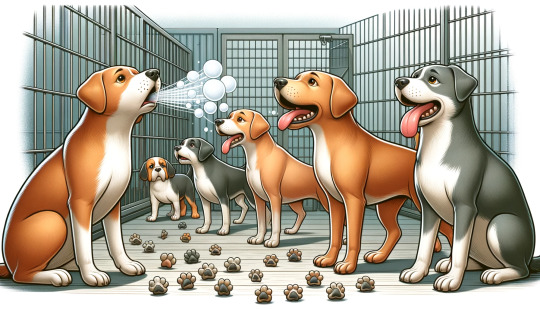
Introduction Kennel Cough, also known as canine infectious tracheobronchitis, is a highly contagious respiratory disease that affects dogs. Understanding how dogs contract this illness, its symptoms, and prevention methods is crucial for pet owners. This article delves into the various aspects of Kennel Cough, providing comprehensive insights into its transmission, risk factors, and effective measures to protect your furry friends. Key Takeaways: Kennel Cough - Kennel Cough is a highly contagious respiratory disease in dogs. - Common symptoms include persistent cough, sneezing, and nasal discharge. - Transmission occurs through direct contact with infected dogs or contaminated surfaces. - Risk factors include crowded environments, weakened immune systems, and poor ventilation. - Vaccination is the most effective prevention method. - Complications can include pneumonia and tracheal collapse. - Treatment involves rest, isolation, and possibly antibiotics. - Good hygiene and avoiding crowded places can help prevent Kennel Cough.
Symptoms of Kennel Cough

Kennel cough, also known as canine infectious tracheobronchitis, is a highly contagious respiratory disease that commonly affects dogs. It is typically caused by a combination of bacterial and viral infections, making it difficult to eliminate completely. The symptoms of kennel cough can vary in severity, depending on the individual dog and the specific pathogens involved. One of the most noticeable symptoms of kennel cough is a persistent, dry, hacking cough. This cough is often described as similar to the sound of honking or gagging. Dogs with kennel cough may also experience episodes of coughing that worsen after exercising or excitement. In some cases, the cough may be accompanied by retching or gagging noises. While kennel cough is usually a self-limiting condition, it can cause significant discomfort and irritate the respiratory tract, leading to further complications if left untreated. It is essential to monitor your dog's symptoms and seek veterinary care if the cough persists or worsens. • Persistent, dry, hacking cough • Coughing worsens after exercising or excitement • Cough may be accompanied by retching or gagging noises • Discomfort and irritation of the respiratory tract
Transmission of Kennel Cough
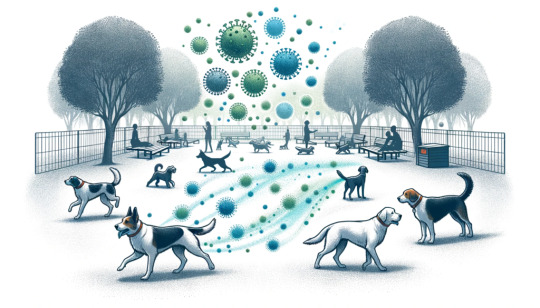
Kennel cough, also known as canine infectious tracheobronchitis, is highly contagious and can easily spread from one dog to another. The most common method of transmission is through direct contact between infected and healthy dogs. When an infected dog coughs or sneezes, tiny respiratory droplets containing the bacteria or virus responsible for kennel cough are released into the air. These droplets can land on surfaces and objects, where they can remain infectious for hours or even days. Healthy dogs that come into contact with contaminated surfaces or inhale the airborne particles have a high risk of contracting the illness. Other modes of transmission can occur in certain situations. Dogs can also contract kennel cough by sharing food and water bowls, toys, or bedding with infected dogs. Additionally, crowded places where dogs gather, such as boarding kennels, dog shows, grooming salons, and animal shelters, can serve as hotspots for the spread of kennel cough. The close proximity of multiple dogs in these settings increases the likelihood of transmission through direct contact or exposure to contaminated surfaces. However, it's important to note that dogs can also contract the infection in everyday environments, such as during walks in the park or encounters with other dogs on the street.
Risk Factors for Kennel Cough

Kennel cough is a highly contagious respiratory disease that can affect dogs of all ages and breeds. While any dog can contract kennel cough, there are certain risk factors that can increase their susceptibility to the disease. One of the main risk factors is exposure to crowded or stressful environments, such as boarding kennels, dog shows, or shelters. These settings often involve close contact with other dogs, making it easy for the infection to spread. Additionally, dogs that have weakened immune systems, such as puppies, older dogs, or those with underlying health conditions, are at a higher risk of developing kennel cough. Another risk factor for kennel cough is poor ventilation. Dogs that are kept in poorly ventilated areas, such as cramped cages or rooms with no fresh air flow, are more likely to breathe in the bacteria or viruses that cause kennel cough. Similarly, dogs that are exposed to environmental irritants, such as cigarette smoke, dust, or chemicals, may also be more susceptible to the disease. These irritants can damage the respiratory tract, making it easier for the pathogens to take hold and cause infection. It is important for dog owners to ensure that their pets are kept in clean and well-ventilated areas to reduce the risk of kennel cough. • Exposure to crowded or stressful environments, such as boarding kennels, dog shows, or shelters • Weakened immune systems, such as puppies, older dogs, or those with underlying health conditions • Poor ventilation in cramped cages or rooms with no fresh air flow • Exposure to environmental irritants like cigarette smoke, dust, or chemicals
Common Places Where Dogs Can Contract Kennel Cough
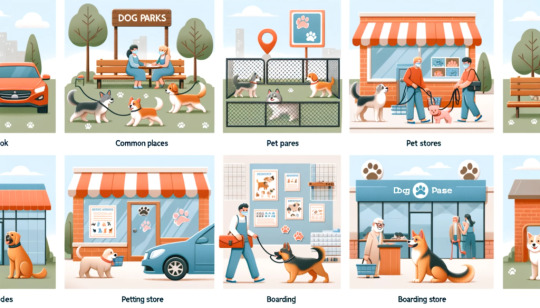
Dogs can contract kennel cough in a variety of common places where they come into contact with other dogs. One of the most common places is at boarding facilities or kennels, where dogs are often brought together from different environments. The close proximity and shared spaces can easily facilitate the spread of the infection. Additionally, dog parks and daycare centers are also potential hotspots for kennel cough transmission, as they are frequented by numerous dogs of different backgrounds. These places provide ample opportunities for dogs to come into direct contact with each other, increasing the risk of transmission. Another common place where dogs can contract kennel cough is during visits to the veterinarian's office. When dogs go for check-ups or are brought in for other medical procedures, they can be exposed to other sick dogs in the waiting room or examination areas. Although veterinary clinics have strict hygiene protocols in place, there is still a chance for dogs to come into contact with infected animals. It is important for dog owners to remain vigilant and take necessary precautions when visiting the veterinarian to minimize the risk of their dog contracting kennel cough in these settings. Overall, it is crucial for dog owners to be aware of the common places where dogs can contract kennel cough. By understanding the environments that pose a higher risk of transmission, appropriate preventive measures can be implemented to help protect dogs from this highly contagious respiratory infection.
Prevention Measures for Kennel Cough
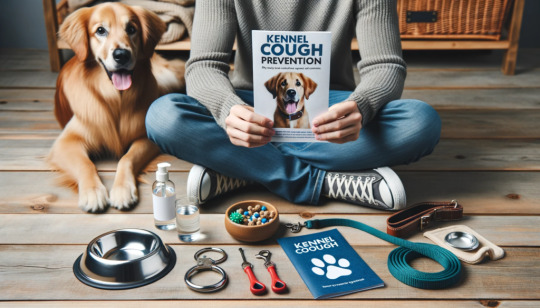
Preventing kennel cough in dogs can be challenging, but there are several measures that can help reduce the risk of infection. The most effective prevention method is vaccination. Vaccines for kennel cough are available and recommended for dogs, especially those that are frequently exposed to other dogs, such as those in boarding facilities, dog parks, or training classes. It is important to consult with a veterinarian to determine the appropriate vaccination schedule for your dog. In addition to vaccination, practicing good hygiene and avoiding exposure to infected dogs can also help prevent kennel cough. Regularly cleaning and disinfecting shared spaces, such as kennels and toys, can help kill the bacteria or viruses that cause kennel cough. Avoiding crowded places with poor ventilation and minimizing direct contact with dogs that are coughing or exhibiting symptoms can further reduce the risk of infection. It is also important to ensure that your dog has a strong immune system through a balanced diet, regular exercise, and proper grooming.
Vaccination Options for Kennel Cough

Vaccination is an effective way to protect dogs against kennel cough. Several vaccines are available to prevent this highly contagious respiratory infection. The most common types of vaccines for kennel cough include injectable vaccines, intranasal vaccines, and combination vaccines. Injectable vaccines are given subcutaneously, while intranasal vaccines are administered directly into the dog's nose. Combination vaccines, on the other hand, provide protection against multiple diseases, including kennel cough, in a single shot. It is important to note that vaccination does not guarantee complete immunity, but it significantly reduces the severity of symptoms and the risk of infection. The frequency of kennel cough vaccination depends on various factors such as the dog's age, health condition, lifestyle, and exposure to other dogs. Generally, initial vaccine administration is recommended when the dog is around six to eight weeks old. Booster vaccinations are typically given every six to twelve months, depending on the specific vaccine used. However, it is crucial to follow the recommended vaccination schedule provided by your veterinarian, as they will consider your dog's individual needs and risk factors. Additionally, it is worth mentioning that some boarding kennels, dog parks, and grooming facilities may require proof of up-to-date kennel cough vaccination before allowing dogs on their premises.
Duration of Kennel Cough Infection
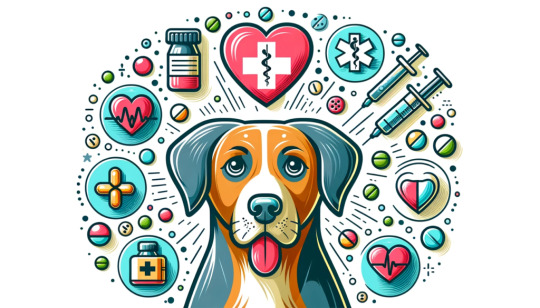
The duration of a kennel cough infection can vary depending on various factors, including the individual dog's immune system and the severity of the infection. In general, most cases of kennel cough tend to resolve on their own within one to three weeks. However, it is important to note that some dogs may experience symptoms for a longer period of time. During the initial stages of infection, dogs may exhibit symptoms such as a dry, hacking cough, sneezing, nasal discharge, and lethargy. As the infection progresses, the cough may become more severe and produce a gagging sound due to irritation in the throat. It is essential to monitor your dog's symptoms closely and seek veterinary attention if the condition worsens or persists for an extended period of time. Understanding the usual duration of kennel cough can help dog owners recognize when their pet's condition is improving or if additional medical intervention is necessary. • Most cases of kennel cough resolve within one to three weeks • Some dogs may experience symptoms for a longer period of time • Initial symptoms include a dry, hacking cough, sneezing, nasal discharge, and lethargy • As the infection progresses, the cough may become more severe and produce a gagging sound • Monitor your dog's symptoms closely and seek veterinary attention if they worsen or persist for an extended period of time
Complications Associated with Kennel Cough
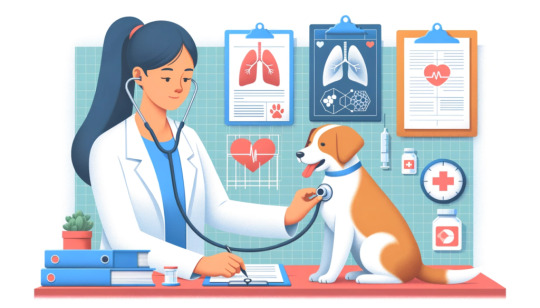
Complications can arise when a dog contracts kennel cough. While most cases of kennel cough resolve on their own within a couple of weeks, some dogs may experience more serious complications. One common complication is the development of pneumonia. This occurs when the initial infection spreads to the lungs, causing inflammation and difficulty breathing. Pneumonia can be particularly dangerous for young puppies, older dogs, and those with weakened immune systems. Another complication that can occur with kennel cough is tracheal collapse. The forceful coughing associated with the illness can put strain on the trachea, leading to weakening of the cartilage rings that support it. Over time, this can result in the collapse of the trachea, causing coughing, wheezing, and difficulty breathing. Small dog breeds, such as Yorkshire Terriers and Chihuahuas, are more prone to this complication. It is important for pet owners to be aware of these potential complications and seek veterinary care if their dog's symptoms worsen or if they notice any concerning signs. Prompt diagnosis and appropriate treatment can help prevent further complications and promote a quicker recovery for dogs affected by kennel cough.
Diagnosis of Kennel Cough

There are several diagnostic methods that veterinarians use to diagnose kennel cough in dogs. The first and most common approach is a thorough physical examination of the dog, which includes checking the dog's temperature, listening to its breathing, and examining its throat and nose for any signs of inflammation or discharge. Additionally, the veterinarian may ask the dog owner about the dog's medical history and recent exposure to other dogs or high-risk environments. This information can help in the diagnostic process. In some cases, further diagnostic tests may be necessary to confirm the presence of kennel cough. These tests can include a blood test to determine if there is an increase in white blood cells, which is often an indication of infection. Another common diagnostic tool is a tracheal wash, where a small tube is inserted into the dog's trachea to collect samples of mucus and bacteria for analysis. This can help identify the specific cause of the cough, such as Bordetella bronchiseptica or other bacteria. X-rays or other imaging techniques may also be used to evaluate the dog's respiratory system and rule out other underlying conditions.Overall, a combination of physical examination, medical history, and diagnostic tests helps veterinarians accurately diagnose kennel cough in dogs. • Thorough physical examination, including temperature check, breathing analysis, and throat/nose examination • Inquiry about medical history and recent exposure to other dogs or high-risk environments • Blood test to check for increased white blood cells indicating infection • Tracheal wash to collect mucus and bacteria samples for analysis • X-rays or imaging techniques to evaluate respiratory system and rule out other conditions
Treatment Options for Kennel Cough
One of the treatment options for kennel cough involves the use of antibiotics. These medications help to target and eliminate the bacterial infection that may be causing the coughing symptoms. The type and duration of antibiotic treatment will depend on the severity of the infection and the overall health of the dog. It is important to follow the veterinarian's instructions regarding the dosage and duration of the antibiotics to ensure effective treatment. In addition to antibiotics, cough suppressants may also be prescribed to help alleviate the persistent coughing associated with kennel cough. These medications work by reducing the urge to cough, providing relief and allowing the dog to rest and recover. Read the full article
#caninehealth#CanineInfectiousTracheobronchitis#CanineRespiratoryInfections#ContagiousDiseasesinDogs#dogdiseases#Doghealth#kennelcough#KennelCoughPrevention#KennelCoughRiskFactors#KennelCoughSymptoms#KennelCoughTransmission#KennelCoughTreatment#KennelCoughVaccination#petcare#RespiratoryDiseaseinDogs
0 notes